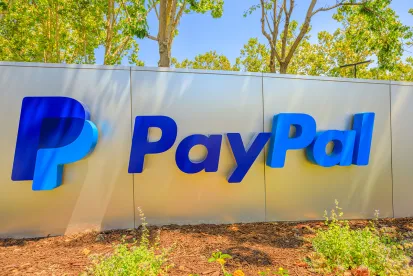On Wednesday, PayPal sued the CFPB in federal district court in the District of Columbia claiming the Bureau's Prepaid Account Rule (“Rule”) is arbitrary and capricious and was issued in violation of the Administrative Procedures Act. The complaint also asserts that the Rule violates PayPal's First Amendment rights by forcing it to deliver irrelevant and misleading information to consumers.
As our readers may know, the Rule has a very broad definition of "prepaid," which sweeps in accounts that offer person-to-person payment capabilities like digital wallets from PayPal and Venmo. PayPal asserts that the Rule was written for general purpose reloadable (“GPR”) cards and that the Bureau did not properly evaluate how the Rule would impact digital wallets. The payments company contends that the Rule’s mandatory disclosure requirements make little sense when applied to digital wallets, are confusing and misleading and ultimately harm consumers:
The resulting regulatory regime is fundamentally ill-suited to PayPal digital wallets and is likely to mislead or confuse consumers. The Rule mandates PayPal make disclosures concerning fees that PayPal does not charge and misrepresent the actual fees paid by most customers. These mandatory disclosures undermine PayPal’s own clear disclosures provided when consumers use their PayPal accounts. For example, the Rule mandates that customers be given—and actually view—“short form” fee disclosures. The requirements for this short form disclosure are extremely prescriptive and rigid. Certain fee categories must be placed in specified positions and presented in certain font sizes, largely because the CFPB deemed these categories most significant for GPR-card customers—and regardless of their relevance to PayPal’s products. The Rule further prohibits PayPal from including explanatory phrases within the disclosure box to describe the nature of these fee categories. Additionally, for each required fee category, the Rule states that the highest possible fee under the worst-case scenario must be disclosed, even if the fee would rarely be incurred by the typical consumer (and would never be incurred without further customer authorization). In other words, the Rule’s mandated short form disclosure regime forces PayPal to make disclosures that confuse consumers as to the products’ actual costs yet bars PayPal from providing the very information that would assist consumers in making an informed decision.
To bolster its argument that the mandatory disclosures are confusing, PayPal includes a number of questions and comments from its customers who were perplexed and upset when they received the Bureau’s required disclosures.
PayPal also complains that the Rule requires a consumer to wait 30 days after opening a prepaid account to link a credit card to it. PayPal argues that, while this might be an appropriate restriction for prepaid cards, it makes no sense for digital wallets—products whose whole purpose is to hold such payment credentials.
In addition, PayPal criticizes the Rule because the Bureau’s consumer testing and cost-benefit analysis were focused almost exclusively on prepaid cards and do not consider the impact of the Rule on digital wallets. The term “digital wallet” never appears in the report on consumer focus groups. And while all of the consumer participants acknowledged using a prepaid card in the prior year, there is no evidence that the participants were familiar with or had ever used a digital wallet.
PayPal says CFPB violated the Administrative Procedure Act because the Rule exceeds the Bureau’s statutory authority under the Electronic Funds Transfer Act (with regard to mandatory disclosures) and the Truth in Lending Act (with regard to linking to credit cards) and that the Rule is arbitrary and capricious because it ignores the unique characteristics of digital wallets that distinguish them from GPR cards and fails to properly consider the costs of applying the Rule to digital wallet products.
In what may be the most interesting part of the complaint, PayPal asserts that the Rule requires it to make statements to its customers that are largely irrelevant and misleading in violation of the company's First Amendment rights:
The Prepaid Rule violates the First Amendment because it requires PayPal to make a series of largely misleading and inapplicable disclosures to its customers that it would not otherwise make and that drown out the speech in which PayPal would prefer to engage. The disclosures are misleading because the Rule requires use of exact or substantially similar terms in the short form to describe certain fee categories that were designed to address the fee structure for GPR cards rather than digital wallets and because clarifying statements about the nature of the fees are not permitted within the short form. The disclosures are also misleading because the Rule requires mention of only the highest possible fee amounts under the worst-case scenario without permitting a description about how or when the fees can be lower.
Courts typically provide a lower level of protection to commercial speech than they do to other constitutionally protected expression. If the commercial speech concerns lawful activity and is not misleading, however, the government’s interest must be “substantial,” and the regulation may not be more extensive than necessary to serve that interest. Recently courts have shown an increased appetite to strike down laws regulating commercial speech where the government fails to meet its burden. We have seen this in the context of federal courts striking down certain state bans on credit card surcharging, where the law regulates the speech by which the surcharge is communicated. PayPal’s challenge to CFPB’s Prepaid Rule has the potential to create new law with regard to the limits on government-mandated consumer disclosures.



 />i
/>i

